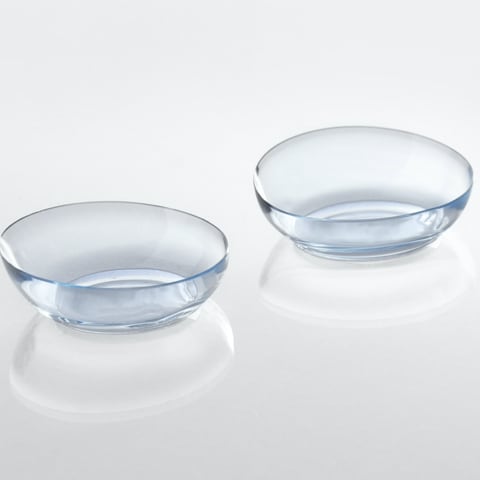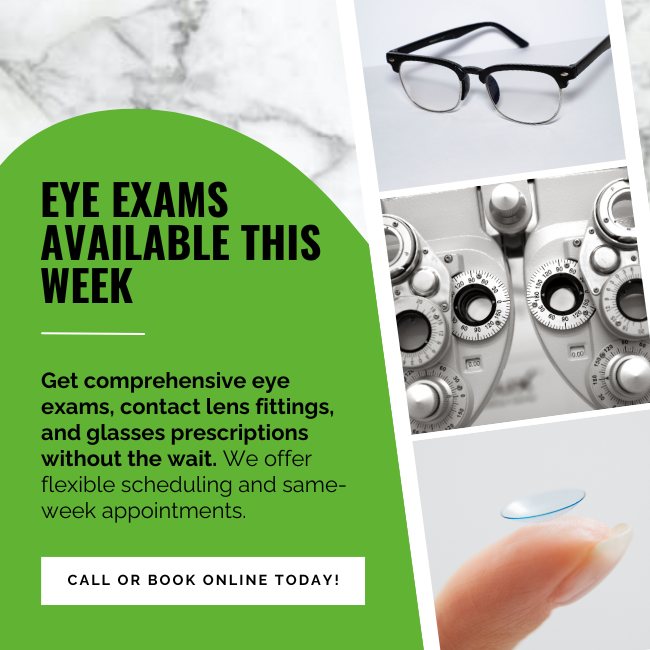Modern Eye Care For the Whole Family
River City Vision Center is dedicated to preserving your family’s vision. We take great pride in our ability to detect, diagnose, and manage eye diseases and conditions. Our selection of modern eye care technologies and one-of-a-kind approach to support your family’s needs.
There is much more to your vision than meets the eye. See how our team can support your eyes and vision today and book your appointment.
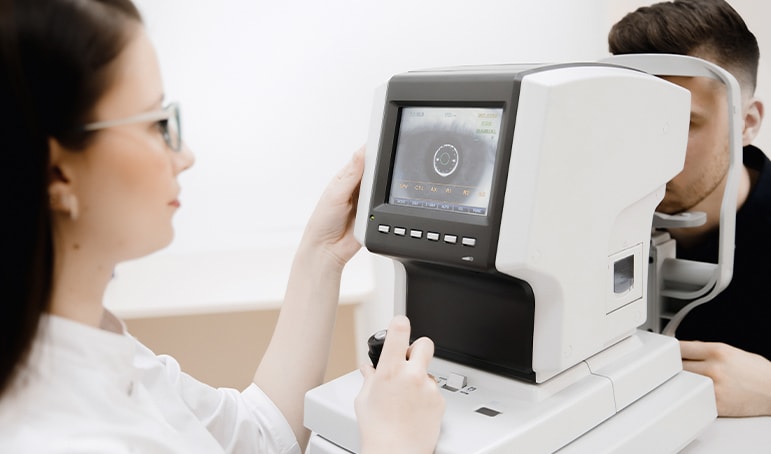
Why Is Your Eye Health Important?
Your eye health and vision share a unique bond, but several issues can develop over time without showing any symptoms. When your vision is affected by an eye disease, the result may be permanent and irreversible.
The key to preserving your eyes and vision is having regular eye exams. We take a detailed look at your eye health during our exam process using a selection of diagnostic tools and technology. Our approach allows us to observe your retina, macula, optic nerve, and other parts of your eye that could be affected by an eye disease or condition.
Detecting these problems as early as possible is essential to managing their progression and preserving your eye health.


How We Examine Your Eye Health
We always strive to use the latest and greatest in eye care technology.
These tools give us an incredible insight into your eye health and the structures that support your vision. During a routine eye exam, our team can detect issues like glaucoma, age-related macular degeneration, diabetic eye disease, and more, all with the help of these comprehensive technologies.
We are happy to let you know what you can expect from your eye exam before coming in. Some of the most common tools we use include optical coherence tomography (OCT), Optos optomap retinal imaging, and tonometry.
Optical Coherence Tomography
Our optical coherence tomography (OCT) device helps us generate cross-sectional images of your retina. These images display the layers of your retina so we can detect potential problems as they are developing.
OCT imaging may require dilating your pupil, but we can prepare you for this before you come into your appointment.
Optos optomap Retinal Imaging
The optomap ultra-widefield retinal imaging device is a unique piece of technology that allows us to capture highly detailed pictures of 80% of your retina.
The process also allows us to examine your retina without having to dilate your eyes, making it one of our go-to choices for observing your eye health and detecting potential issues.
Tonometry
Tonometry is a technique that helps us measure your eye’s intraocular pressure (IOP). High or unstable IOP is a common sign of glaucoma, an eye disease that can cause permanent vision loss.
We use 2 different tonometry techniques:
Both techniques measure your IOP levels by testing the resistance of your eye surface. Goldmann applanation tonometers use a small probe, while a non-contact tonometer uses a small puff of air.
Common Eye Diseases & Conditions
Eye diseases and conditions can develop in many people for several reasons. Some may be treated through surgery or medication, while others may only be managed.
We can recommend a treatment or management strategy based on your issue and how it affects your eye health and vision. No two pairs of eyes are ever the same, and we personalize our process to ensure we are meeting your needs.
Glaucoma
Glaucoma is a group of eye diseases that affect your optic nerve. Many versions of glaucoma occur alongside the unstable rise of IOP levels, but others may develop while your IOP stays at a normal range.
The 3 most common types of glaucoma include:
Open-Angle Glaucoma
Open-angle glaucoma occurs when small blockages form in your eye’s natural drainage system, which prevents fluids from flowing out of your eyes properly. Over time, your IOP levels rise and affect your optic nerve, eventually leading to vision loss.
Open-angle glaucoma is the most common version of the disease, and your risk of developing it increases with age, genetics, or medical conditions like diabetes.
Angle-Closure Glaucoma
Angle-closure glaucoma is an emergency that can cause sudden symptoms like nausea, red eyes, eye pain, headaches, and vision loss.
It can occur when the drainage canal between the iris and cornea closes, rapidly increasing IOP levels. If you risk developing glaucoma and experience sudden eye symptoms, please contact us for an emergency appointment.
Laser peripheral iridotomy surgery could help lower your risk of developing angle-closure glaucoma.
Normal-Tension Glaucoma
Normal-tension glaucoma develops when your IOP levels are within a normal range. However, our team can help detect this issue by observing your optic nerve during a comprehensive eye exam.
Age-Related Macular Degeneration
Age-related macular degeneration (AMD) is a common eye disease usually affecting adults 55 and older. The disease targets the macula, a part of your retina responsible for providing your central vision.
As the disease deteriorates the macula, it may become more difficult to read, drive, or recognize faces.
There are 2 types of AMD:
Dry AMD is the most common and can occur when small deposits of lipids, known as drusen, thin the macula over time and lead to vision loss.
Wet AMD is much less common but is responsible for 90% of all AMD-related vision loss.
Wet AMD can develop when abnormal blood vessels develop under the macula over time. These vessels can break and leak fluid, causing the macula to swell, leading to permanent vision loss.
Diabetic Eye Disease
While diabetes can increase the risk of open-angle glaucoma and cataracts, it can also increase the risk of diabetes-specific eye diseases like diabetic retinopathy and diabetic macular edema.
If you have diabetes, we recommend having yearly eye exams to protect your sight. Learn more about how diabetes can affect your eyes on our Diabetic Eye Exams page.
Diabetic Retinopathy
Diabetic retinopathy is an eye disease that occurs when diabetes affects the blood vessels in your retina. Over time, these vessels can bulge, break, and leak fluid into the retina, causing permanent vision loss.
A more severe form of the disease, known as proliferative diabetic retinopathy, can occur when your retina creates new, but abnormal, blood vessels to help compensate for fluid loss. However, these vessels are delicate and break easily, which can create scar tissue on your retina and increase the risk of retinal detachment.
Diabetic Macular Edema
Diabetic macular edema is an eye disease that can develop alongside diabetic retinopathy.
As fluids leak from damaged blood vessels, the fluids can accumulate under the macula and cause it to swell. Eventually, it may lead to central vision problems and possible permanent vision loss.
Cataracts
Cataracts are a common eye condition many adults develop as they grow older, but the risk of them developing can increase if you smoke, drink excessively, have diabetes, or do not protect your eyes from UV exposure.
Cataracts develop as proteins in your eye’s lens break down over time, which causes the lens to stiffen and develop a milky, hazy color that obstructs your sight. Glasses and contact lenses could help correct early vision problems caused by cataracts, but the only way to restore your sight is with cataract surgery.
A Personalized Approach to Medical Eye Care
Each step of our process is designed to be comfortable, comprehensive, and compassionate.
If you and your family are looking for a medically focused practice dedicated to innovation, then look no further than River City Vision Center. Book your next appointment with us today.

Our Locations
Jacksonville
You can find River City Vision Center in the Main Street Mall. We are conveniently located just off North Main Street.
Jacksonville Address
- 13453 N. Main St. Suite #203
- Jacksonville, FL 32218
Contact Information
- Phone: 904-696-2027

Jacksonville Hours
- Monday: 9:00 AM – 6:00 PM
- Tuesday: 9:00 AM – 6:00 PM
- Wednesday: 9:00 AM – 6:00 PM
- Thursday: 9:00 AM – 6:00 PM
- Friday: 9:00 AM – 5:00 PM
- Saturday: Closed
- Sunday: Closed
- Closed Daily: 1:00 PM – 2:00 PM
Orange Park
Find us beside Publix Food & Pharmacy. Plenty of parking is available out front with accessibility options available.
Orange Park Address
- 1075 Oakleaf Plantation Pkwy, #300
- Orange Park, FL 32065
Contact Information
- Phone: 904-449-7720

Orange Park Hours
- Monday: 9:00 AM – 6:00 PM
- Tuesday: 9:00 AM – 6:00 PM
- Wednesday: 9:00 AM – 6:00 PM
- Thursday: 9:00 AM – 6:00 PM
- Friday: 9:00 AM – 5:00 PM
- Saturday: Closed
- Sunday: Closed
- Closed Daily: 1:00 PM – 2:00 PM
Our Brands



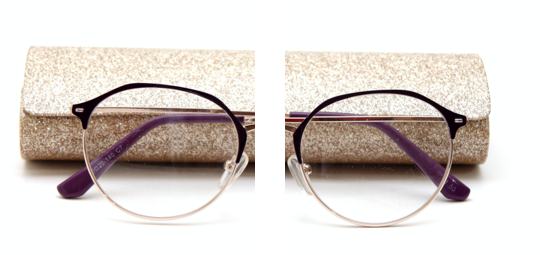



Our Google Reviews

Our Blog
What Are Scleral Contact Lenses & How Do They Work?
Contact Lenses, Dry Eye, Eye HealthScleral lenses are a type of specialty lens designed to vault over the top of the cornea, where a traditional lens normally sits, and rest on the white part of your eye called the sclera. […]
Can Diabetes Be Detected in an Eye Exam?
Eye Exams, Eye HealthSurprisingly, eye exams are not just for correcting vision—they can also be critical in detecting diabetes. In particular, diabetic retinopathy causes damage to blood vessels in the retina, which is caused by high blood sugar, which can be seen in an eye exam. […]
Why Are My Eyes Dry When I Wake Up?
Dry EyeWaking up with dry eyes isn’t just uncomfortable—it can make you start your day worried about your eye health. Your optometrist can help, and with a comprehensive eye exam, they can provide a diagnosis and treatment for your morning dry eyes. But still: why do you have dry eyes in the morning? Morning dry eyes […]
What Are Scleral Contact Lenses & How Do They Work?
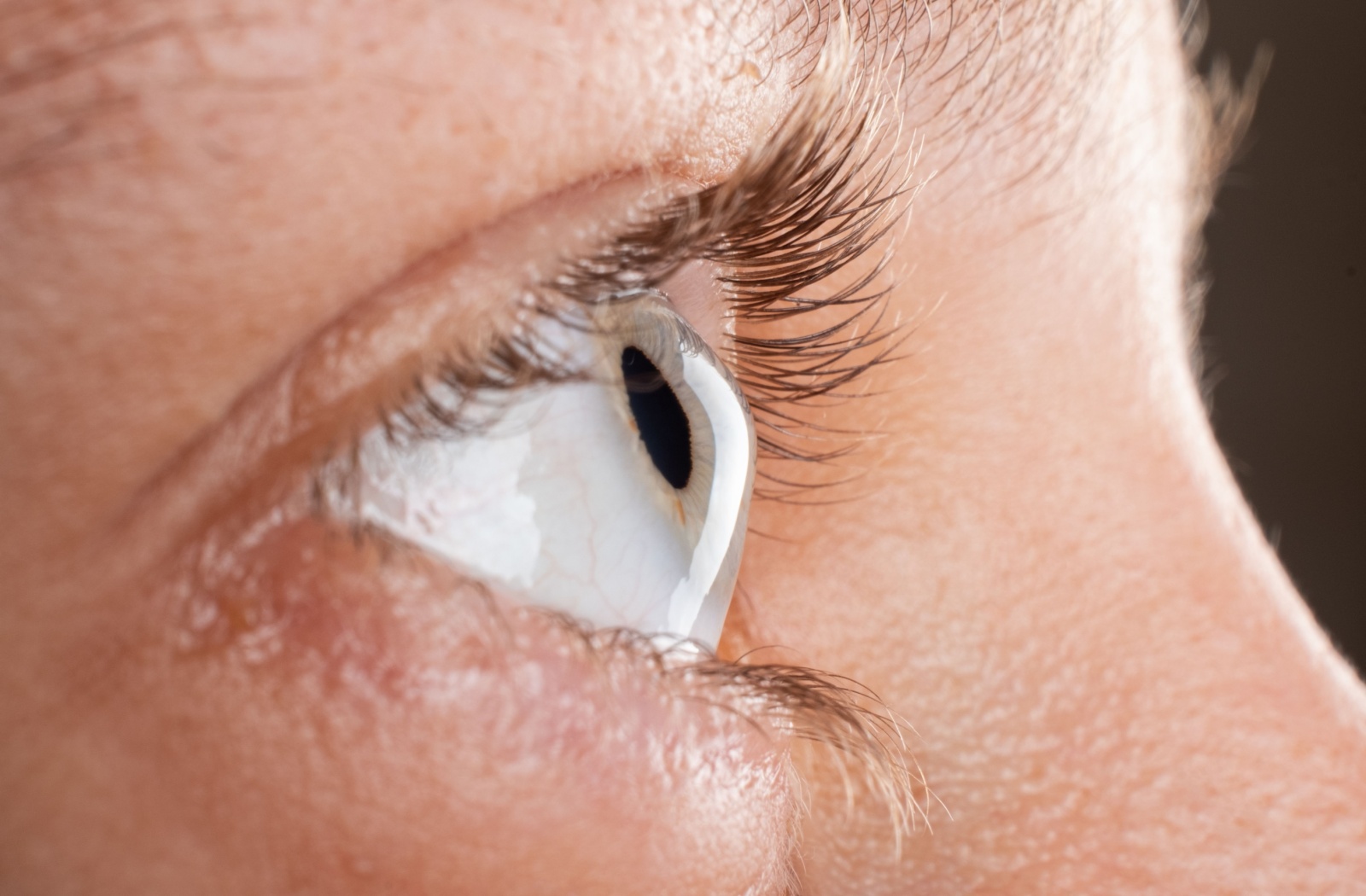
Scleral lenses are a type of specialty lens designed to vault over the top of the cornea, where a traditional lens normally sits, and rest on the white part of your eye called the sclera. […]
Can Diabetes Be Detected in an Eye Exam?
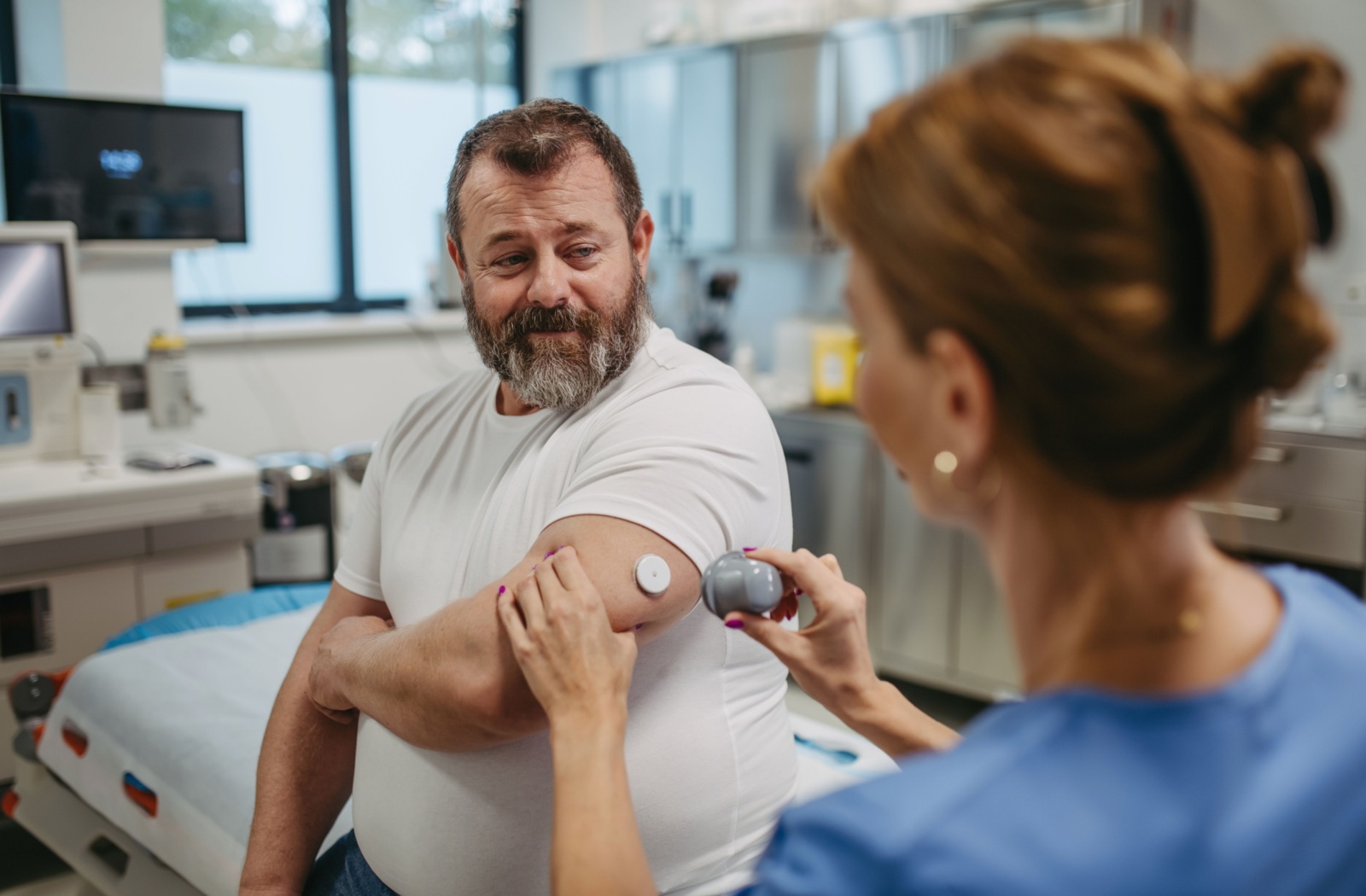
Surprisingly, eye exams are not just for correcting vision—they can also be critical in detecting diabetes. In particular, diabetic retinopathy causes damage to blood vessels in the retina, which is caused by high blood sugar, which can be seen in an eye exam. […]
Why Are My Eyes Dry When I Wake Up?

Waking up with dry eyes isn’t just uncomfortable—it can make you start your day worried about your eye health. Your optometrist can help, and with a comprehensive eye exam, they can provide a diagnosis and treatment for your morning dry eyes. But still: why do you have dry eyes in the morning? Morning dry eyes […]
Check us out on Instagram
Error: No feed found.
Please go to the Instagram Feed settings page to create a feed.


